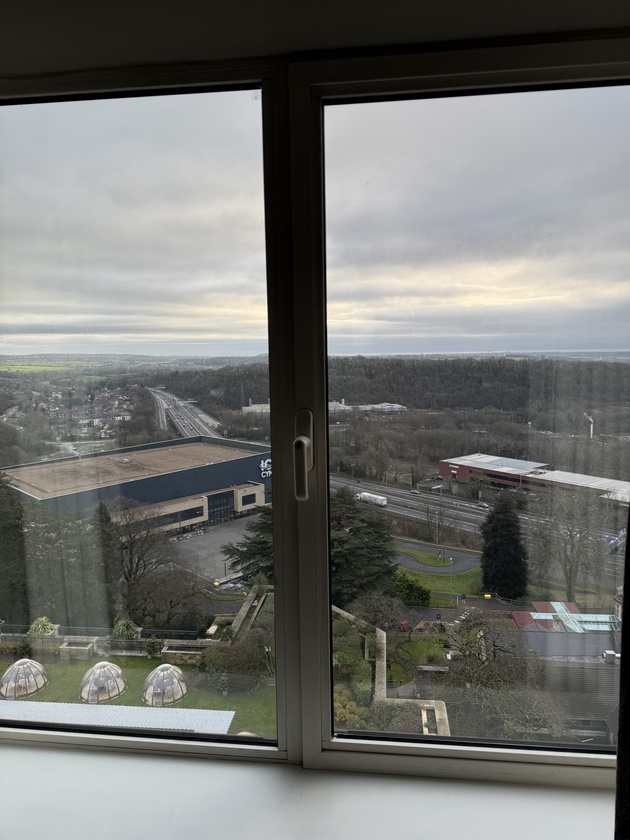When people think about industrial air cleaning, large factories and massive warehouses often come to mind. However, small businesses—especially those operating in manufacturing, auto repair, food processing, woodworking, and similar environments—face the same, if not greater, challenges when it comes to maintaining air quality.
In fact, because small businesses often operate with tighter margins and smaller teams, the impact of poor air quality on productivity, health, and regulatory compliance can be even more severe. Investing in proper industrial air cleaning isn't just good practice; it's a vital step toward long-term success and sustainability.
Health Risks Are Magnified in Smaller Spaces
One of the biggest reasons small businesses must prioritize industrial air cleaning is the sheer health risk associated with poor air quality. In industries where dust, chemical vapors, fine particulates, or fumes are present, exposure can lead to respiratory issues, skin conditions, and long-term illnesses.
Unlike large corporations that may have vast facilities where contaminants can disperse, small businesses often operate in tighter, enclosed spaces where airborne particles concentrate quickly. Without proper air cleaning systems in place, workers are exposed to hazardous conditions that can lead to more frequent sick days, higher healthcare costs, and even potential lawsuits.
Even seemingly "light" industries like printing shops, bakeries, and small breweries deal with airborne pollutants that, if not properly managed, can have serious health consequences for staff and customers alike.
Compliance with Safety and Health Regulations
Air quality in the workplace isn’t just a wellness concern—it’s also a matter of legal compliance. Government agencies such as OSHA (Occupational Safety and Health Administration) have strict guidelines concerning indoor air pollutants, permissible exposure limits, and ventilation requirements.
Small businesses are not exempt. In fact, failure to meet these standards can lead to steep fines, increased insurance premiums, and in severe cases, business closure. OSHA has outlined clear guidelines for industrial air quality, which you can explore in more detail at https://www.osha.gov/indoor-air-quality.
Ensuring clean air through industrial filtration systems demonstrates that your business takes employee safety seriously—building trust with your workforce and reducing legal risks at the same time.
Protecting Equipment and Reducing Maintenance Costs
Airborne dust and contaminants don’t just harm people—they also damage machinery and equipment. Fine particles can infiltrate sensitive electronics, clog HVAC systems, and wear down moving parts, leading to more frequent repairs and replacements.
For small businesses, where every dollar counts, avoiding unexpected equipment failures and costly downtime is critical. Installing proper industrial air cleaning systems extends the life of valuable tools and machines, minimizes maintenance costs, and keeps operations running smoothly.
A clean environment also boosts the efficiency of heating, ventilation, and cooling systems, leading to lower energy bills and a more sustainable operation.
A Stronger Brand Image and Customer Trust
In today’s marketplace, customers care more than ever about environmental health and safety. Whether you run a small cafe with open baking areas or a local furniture workshop, visible efforts to maintain a clean, safe environment make a lasting impression.
Marketing air quality efforts can even become a brand differentiator. Posting visible signage about your air cleaning systems, sharing updates on your website or social media, or offering tours that highlight your facility’s cleanliness shows that your business goes the extra mile to protect both workers and customers.
This proactive approach doesn’t just reduce risks—it enhances your reputation, builds customer loyalty, and positions your small business as forward-thinking and responsible.
Tailoring Industrial Air Cleaning Solutions to Small Business Needs
One misconception is that industrial air cleaning is “too big” or “too expensive” for small businesses. In reality, modular and scalable solutions exist to fit smaller spaces and tighter budgets.
From portable dust collectors to overhead filtration units and local exhaust ventilation systems, businesses can customize their setups based on specific needs. Some common types of air cleaning solutions for small operations include:
HEPA-filtered air scrubbers
Fume extractors for welding or soldering stations
Oil mist collectors for machine shops
Odor control systems for food production environments
Consulting with industrial air quality experts can help small business owners design cost-effective, compliant, and highly efficient systems tailored specifically to their operations.
Long-Term Benefits Outweigh Initial Costs
While upfront installation of industrial air cleaning equipment does involve an investment, the long-term benefits far outweigh the costs. These include:
Reduced sick leave and healthcare costs
Lower employee turnover and higher satisfaction
Extended equipment lifespan
Compliance with regulations, avoiding penalties
Improved customer experience and loyalty
Increased operational efficiency
In short, industrial air cleaning isn’t just about "cleaning the air"—it’s about protecting your most valuable assets: your people, your equipment, and your brand reputation.
Final Thoughts: Clean Air, Healthy Business
Small businesses form the backbone of local economies, employing millions and serving as the heart of their communities. Yet, when it comes to air quality, they often face challenges that larger companies are better equipped to handle.
By investing early in industrial air cleaning systems, small businesses can ensure a safer, healthier, and more productive environment for employees and customers alike. In doing so, they future-proof their operations against health risks, legal trouble, and unnecessary expenses—while building a brand that people can trust.
Clean air isn’t just good for health—it’s smart business strategy.




















